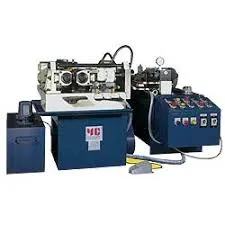
-
 Afrikaans
Afrikaans -
 Albanian
Albanian -
 Amharic
Amharic -
 Arabic
Arabic -
 Armenian
Armenian -
 Azerbaijani
Azerbaijani -
 Basque
Basque -
 Belarusian
Belarusian -
 Bengali
Bengali -
 Bosnian
Bosnian -
 Bulgarian
Bulgarian -
 Catalan
Catalan -
 Cebuano
Cebuano -
 Corsican
Corsican -
 Croatian
Croatian -
 Czech
Czech -
 Danish
Danish -
 Dutch
Dutch -
 English
English -
 Esperanto
Esperanto -
 Estonian
Estonian -
 Finnish
Finnish -
 French
French -
 Frisian
Frisian -
 Galician
Galician -
 Georgian
Georgian -
 German
German -
 Greek
Greek -
 Gujarati
Gujarati -
 Haitian Creole
Haitian Creole -
 hausa
hausa -
 hawaiian
hawaiian -
 Hebrew
Hebrew -
 Hindi
Hindi -
 Miao
Miao -
 Hungarian
Hungarian -
 Icelandic
Icelandic -
 igbo
igbo -
 Indonesian
Indonesian -
 irish
irish -
 Italian
Italian -
 Japanese
Japanese -
 Javanese
Javanese -
 Kannada
Kannada -
 kazakh
kazakh -
 Khmer
Khmer -
 Rwandese
Rwandese -
 Korean
Korean -
 Kurdish
Kurdish -
 Kyrgyz
Kyrgyz -
 Lao
Lao -
 Latin
Latin -
 Latvian
Latvian -
 Lithuanian
Lithuanian -
 Luxembourgish
Luxembourgish -
 Macedonian
Macedonian -
 Malgashi
Malgashi -
 Malay
Malay -
 Malayalam
Malayalam -
 Maltese
Maltese -
 Maori
Maori -
 Marathi
Marathi -
 Mongolian
Mongolian -
 Myanmar
Myanmar -
 Nepali
Nepali -
 Norwegian
Norwegian -
 Norwegian
Norwegian -
 Occitan
Occitan -
 Pashto
Pashto -
 Persian
Persian -
 Polish
Polish -
 Portuguese
Portuguese -
 Punjabi
Punjabi -
 Romanian
Romanian -
 Russian
Russian -
 Samoan
Samoan -
 Scottish Gaelic
Scottish Gaelic -
 Serbian
Serbian -
 Sesotho
Sesotho -
 Shona
Shona -
 Sindhi
Sindhi -
 Sinhala
Sinhala -
 Slovak
Slovak -
 Slovenian
Slovenian -
 Somali
Somali -
 Spanish
Spanish -
 Sundanese
Sundanese -
 Swahili
Swahili -
 Swedish
Swedish -
 Tagalog
Tagalog -
 Tajik
Tajik -
 Tamil
Tamil -
 Tatar
Tatar -
 Telugu
Telugu -
 Thai
Thai -
 Turkish
Turkish -
 Turkmen
Turkmen -
 Ukrainian
Ukrainian -
 Urdu
Urdu -
 Uighur
Uighur -
 Uzbek
Uzbek -
 Vietnamese
Vietnamese -
 Welsh
Welsh -
 Bantu
Bantu -
 Yiddish
Yiddish -
 Yoruba
Yoruba -
 Zulu
Zulu
Exploring Various Types of Thread Rolling Machines Used in China
Types of Thread Rolling Machines in China
Thread rolling is a manufacturing process used to create screw threads on metal components with high precision and efficiency. In China, the development and production of thread rolling machines have advanced significantly, catering to various industries, including automotive, aerospace, and consumer products. This article explores the different types of thread rolling machines available in China and their respective applications.
1. Flat Die Thread Rolling Machines
Flat die thread rolling machines are among the most common types utilized in thread manufacturing. These machines use two flat dies, which press against the workpiece to form the desired thread profile. Typically, flat die machines are ideal for producing large quantities of screws, bolts, and other fasteners in various sizes. They are especially noted for their high efficiency, producing threads with excellent surface finish and dimensional accuracy. These machines can process different materials, including steel, aluminum, and brass, making them versatile for various manufacturing needs.
2. Circular Die Thread Rolling Machines
Circular die thread rolling machines utilize a rotating die system to produce threads on cylindrical workpieces. This type of machine is particularly effective for producing longer screws and bolts, as it allows for continuous rolling. Circular die machines are advantageous for mass production since they can operate at high speeds while maintaining precision. They are commonly used in the automotive and electronics industries, where large volumes of threaded components are required.
3. Universal Thread Rolling Machines
china types of thread rolling machine

Universal thread rolling machines offer the flexibility to produce various thread types and shapes. These machines can accommodate different die sets, allowing manufacturers to switch out tools quickly to adapt to specific production needs. Universal thread rolling machines are ideal for job shops that handle a variety of threaded parts or for manufacturers producing both high volumes and custom parts. The adaptability of these machines makes them a valuable investment for businesses looking to diversify their product offerings without the need for multiple specialized machines.
4. Automated Thread Rolling Systems
With the rise of Industry 4.0, automated thread rolling systems are becoming increasingly popular in China. These machines integrate advanced technology, such as robotics and computer numerical control (CNC), to enhance precision and efficiency. Automated systems can operate around the clock, minimizing labor costs and increasing throughput. They often feature sophisticated software that allows for real-time monitoring and adjustments, ensuring that production remains consistent and accurate. These systems are particularly suited for high-volume production environments where precision and speed are critical.
5. Specialized Thread Rolling Machines
In addition to standard rolling machines, there are specialized designs tailored for specific applications, such as producing threads on parts with unique geometries or those made from exotic materials. These specialized machines may incorporate specific features, such as ability to handle fragile components or accommodate varying thread profiles. Manufacturers in niche markets often rely on these machines to meet unique customer requirements or to comply with specific industry standards.
Conclusion
As China continues to expand its manufacturing capabilities, the variety of thread rolling machines available plays a pivotal role in meeting the needs of diverse industries. From flat and circular die machines to automated systems and specialized designs, the options are vast and cater to different production scenarios. These machines not only enhance production efficiency but also improve product quality, making them essential tools in modern manufacturing processes. With ongoing advancements in technology and increasing demand for precision-engineered components, the future of thread rolling machines in China looks promising.
